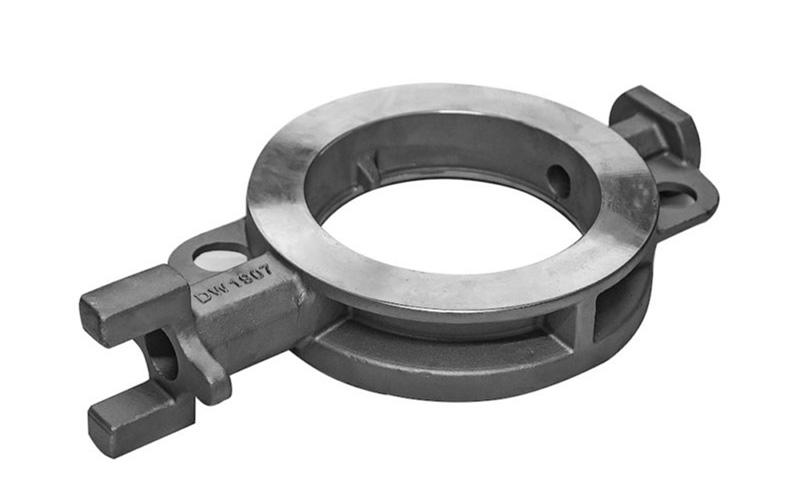Steel Casting Components for Petrochemical: Durable and Reliable Solutions for Harsh Environments
Steel casting components are an essential part of the petrochemical industry, providing strength and durability to equipment used in the processing of oil and gas. These components are used in a variety of applications, from valves and pumps to heat exchangers and reactors. The unique properties of steel make it an ideal material for these components, as it can withstand high temperatures and pressures, as well as corrosive environments.
Steel casting components are made by pouring molten steel into a mold, which is then cooled and solidified to create the desired shape. This process allows for precise control over the size and shape of the component, as well as the ability to create complex geometries. Steel casting components are also highly customizable, with the ability to add features such as flanges, threads, and bosses to meet specific application requirements.
In the petrochemical industry, steel casting components play a critical role in ensuring the safe and efficient processing of oil and gas. Choosing the right components for a particular application is essential, as they must be able to withstand the harsh conditions of the petrochemical environment. With their strength, durability, and customizability, steel casting components are a reliable choice for petrochemical equipment manufacturers.
Steel Casting Components
Overview
Steel casting components are a crucial part of the petrochemical industry. These components are used in various applications, including valves, pumps, compressors, and turbines. Steel casting components are preferred over other materials due to their high strength, durability, and resistance to corrosion. They are also capable of withstanding high temperatures and pressures, making them ideal for use in harsh environments.
Steel casting components are produced using different casting techniques, including sand casting, investment casting, and die casting. The choice of casting technique depends on the complexity of the component, the required accuracy, and the production volume.
Applications
Steel casting components find applications in various industries, including petrochemical, oil and gas, mining, and construction. Some of the common applications of steel casting components in the petrochemical industry include:
- Valves: Steel casting components are used in valves to regulate the flow of fluids and gases. They are preferred over other materials due to their ability to withstand high pressures and temperatures.
- Pumps: Steel casting components are used in pumps to transfer fluids and gases from one location to another. They are preferred over other materials due to their high strength and durability.
- Compressors: Steel casting components are used in compressors to increase the pressure of gases. They are preferred over other materials due to their ability to withstand high pressures and temperatures.
- Turbines: Steel casting components are used in turbines to convert the energy of fluids and gases into mechanical energy. They are preferred over other materials due to their high strength and durability.
In conclusion, steel casting components are an essential part of the petrochemical industry. They are preferred over other materials due to their high strength, durability, and resistance to corrosion. Steel casting components find applications in various industries, including petrochemical, oil and gas, mining, and construction.
Petrochemical Industry
Overview
The petrochemical industry is a vital sector of the global economy, with a wide range of applications in various industries such as automotive, construction, and electronics. Petrochemicals are derived from crude oil and natural gas, and they are used to manufacture a diverse range of products, including plastics, fertilizers, and synthetic fibers.
The petrochemical industry is divided into two main categories: primary petrochemicals and secondary petrochemicals. Primary petrochemicals are produced directly from crude oil or natural gas, while secondary petrochemicals are produced by processing primary petrochemicals.
Importance
The petrochemical industry plays a crucial role in the development and growth of the global economy. It provides essential raw materials for various industries, which in turn, create jobs and generate revenue. The industry also contributes significantly to the GDP of many countries, particularly those with abundant oil and gas reserves.
One of the critical applications of petrochemicals is in the manufacturing of steel casting components. These components are used in various petrochemical processes, such as refining, processing, and transportation of crude oil and natural gas. Steel casting components are preferred in the petrochemical industry due to their durability, strength, and resistance to corrosion and high temperatures.
In conclusion, the petrochemical industry is a vital sector of the global economy, providing essential raw materials for various industries, including the production of steel casting components.
Benefits of Steel Casting Components for Petrochemical
Durability
Steel casting components are known for their exceptional strength and durability. They can withstand high temperatures, pressures, and corrosive environments, making them ideal for use in petrochemical applications. Steel castings are also resistant to wear and tear, which is important in industries where components are subjected to constant stress and strain.
Corrosion Resistance
One of the biggest advantages of steel casting components for petrochemical is their corrosion resistance. Steel castings can be made with various alloys and coatings to protect against corrosion caused by chemicals, moisture, and other environmental factors. This makes them ideal for use in harsh petrochemical environments where corrosion can cause equipment failure and safety hazards.
Design Flexibility
Steel casting components offer design flexibility that is unmatched by other manufacturing processes. They can be cast into complex shapes and sizes, allowing for customized components that meet the specific needs of petrochemical applications. Steel castings can also be machined and welded, providing additional flexibility in the manufacturing process.
Steel casting components for petrochemical offer numerous benefits, including durability, corrosion resistance, and design flexibility. These advantages make them a popular choice for use in petrochemical applications where reliability and safety are paramount.
Types of Steel Casting Components
Steel casting components are widely used in the petrochemical industry due to their durability, strength, and resistance to corrosion. These components are used in various applications such as valves, pumps, flanges, and fittings.
Valves
Valves are essential components that regulate the flow of liquids and gases. They are used in various petrochemical processes such as refining, distillation, and storage. Steel casting valves are preferred over other materials due to their high strength and resistance to corrosion. Some common types of steel casting valves used in the petrochemical industry include gate valves, globe valves, ball valves, and check valves.
Pumps
Pumps are used to transfer liquids from one place to another. Steel casting pumps are widely used in the petrochemical industry due to their high durability and strength. They are used in various applications such as chemical processing, oil and gas production, and water treatment. Some common types of steel casting pumps used in the petrochemical industry include centrifugal pumps, positive displacement pumps, and diaphragm pumps.
Flanges
Flanges are used to connect pipes, valves, and other components in a pipeline system. Steel casting flanges are preferred over other materials due to their high strength and resistance to corrosion. They are used in various applications such as oil and gas production, chemical processing, and water treatment. Some common types of steel casting flanges used in the petrochemical industry include weld neck flanges, slip-on flanges, and blind flanges.
Fittings
Fittings are used to connect pipes and other components in a pipeline system. Steel casting fittings are widely used in the petrochemical industry due to their high strength and resistance to corrosion. They are used in various applications such as oil and gas production, chemical processing, and water treatment. Some common types of steel casting fittings used in the petrochemical industry include elbows, tees, reducers, and couplings.
In conclusion, steel casting components are widely used in the petrochemical industry due to their durability, strength, and resistance to corrosion. Valves, pumps, flanges, and fittings are some of the common types of steel casting components used in various petrochemical applications.
Manufacturing Process
Pattern Making
The first step in the manufacturing process of steel casting components is pattern making. This involves creating a pattern of the component to be cast using wood, plastic, or metal. The pattern is then used to create a mold for the casting process.
Molding
The next step is molding, where the pattern is placed in a sand mold to create a cavity. The sand used in the molding process is mixed with a bonding agent to ensure that it holds its shape. The mold is then cured to harden the sand and create a solid mold.
Melting and Pouring
Once the mold is ready, the steel is melted in a furnace at high temperatures. The temperature of the furnace varies depending on the type of steel being used. Once the steel has reached the desired temperature, it is poured into the mold and left to cool.
Finishing
Once the steel has cooled, the casting is removed from the mold and any excess material is removed using cutting or grinding tools. The casting is then cleaned and inspected for any defects. If any defects are found, the casting is either repaired or scrapped.
Overall, the manufacturing process for steel casting components is a complex and precise process that requires skilled workers and specialized equipment. By following a strict manufacturing process, high-quality components can be produced that meet the strict standards required for use in petrochemical applications.
Quality Control
Quality control is a critical aspect of the manufacturing process for steel casting components used in petrochemical applications. Ensuring that each component meets strict quality standards is essential for safety and reliability in harsh operating conditions.
Testing Procedures
To guarantee the quality of steel casting components, manufacturers employ a range of testing procedures. These tests are designed to identify any defects or issues that could compromise the integrity of the component. Some of the most common testing procedures include:
- Non-destructive testing (NDT): This method uses ultrasonic, radiographic, or magnetic particle testing to detect any internal flaws in the component without damaging it.
- Chemical analysis: This test determines the composition of the steel to ensure that it meets the required specifications.
- Mechanical testing: This test measures the strength, hardness, and other mechanical properties of the component to ensure that it can withstand the stresses of its intended application.
- Dimensional inspection: This test checks the dimensions and tolerances of the component to ensure that it meets the required specifications.
Certifications
In addition to testing procedures, steel casting components for petrochemical applications must also meet various certifications. These certifications demonstrate that the component meets the required standards for safety, quality, and environmental impact. Some of the most common certifications include:
- American Petroleum Institute (API) certification: This certification is required for components used in the oil and gas industry and ensures that the component meets strict standards for safety and performance.
- ISO 9001: This certification demonstrates that the manufacturer has a quality management system in place that meets international standards.
- Environmental certifications: These certifications, such as ISO 14001, demonstrate that the manufacturer has implemented an environmental management system to minimize the impact of the manufacturing process on the environment.
In conclusion, quality control is a critical aspect of the manufacturing process for steel casting components used in petrochemical applications. Testing procedures and certifications ensure that each component meets strict quality standards for safety and reliability.

